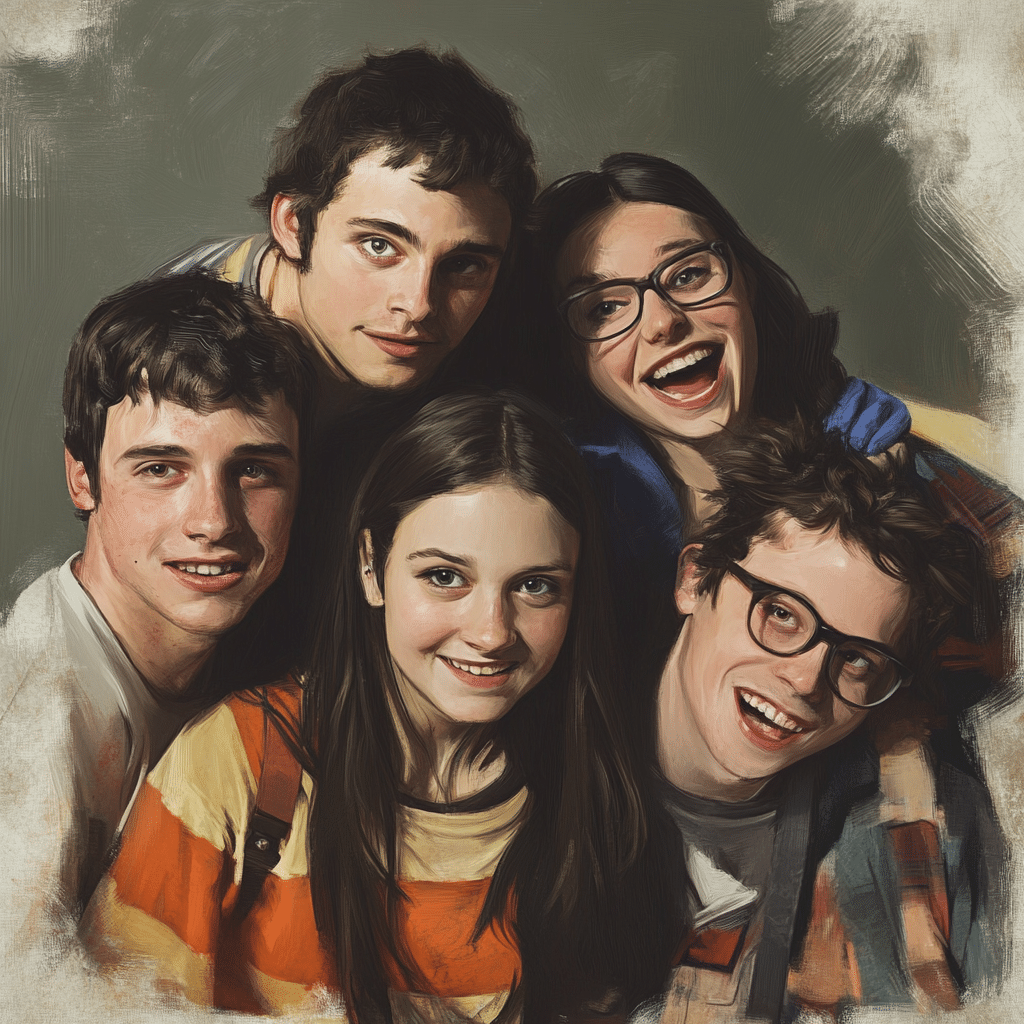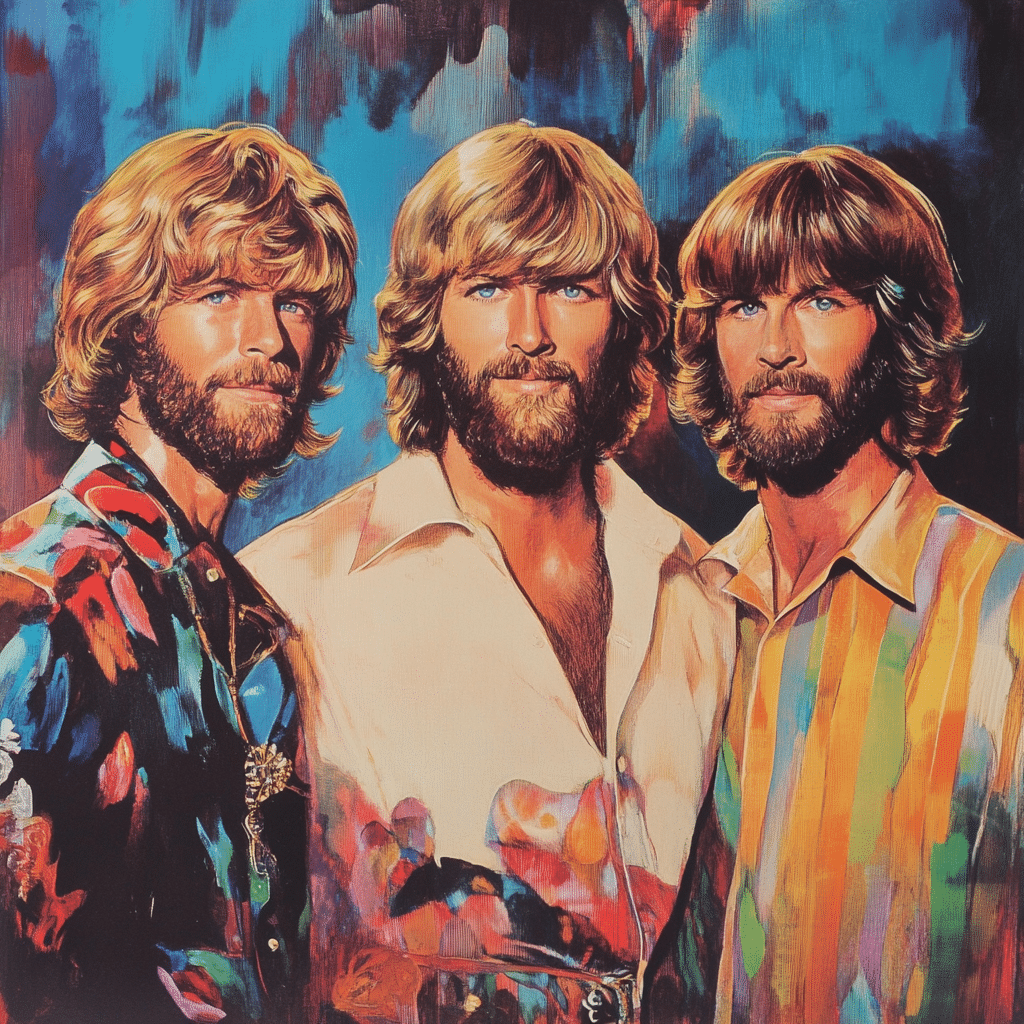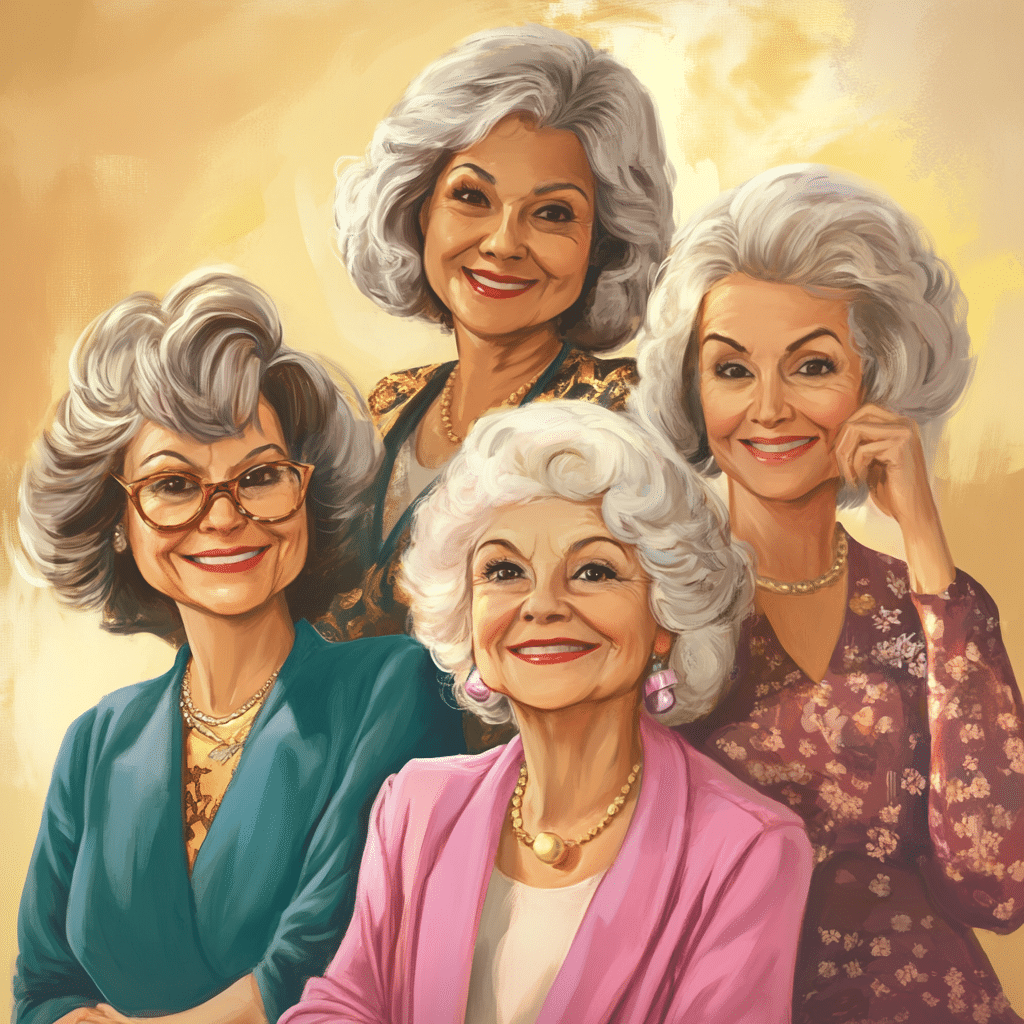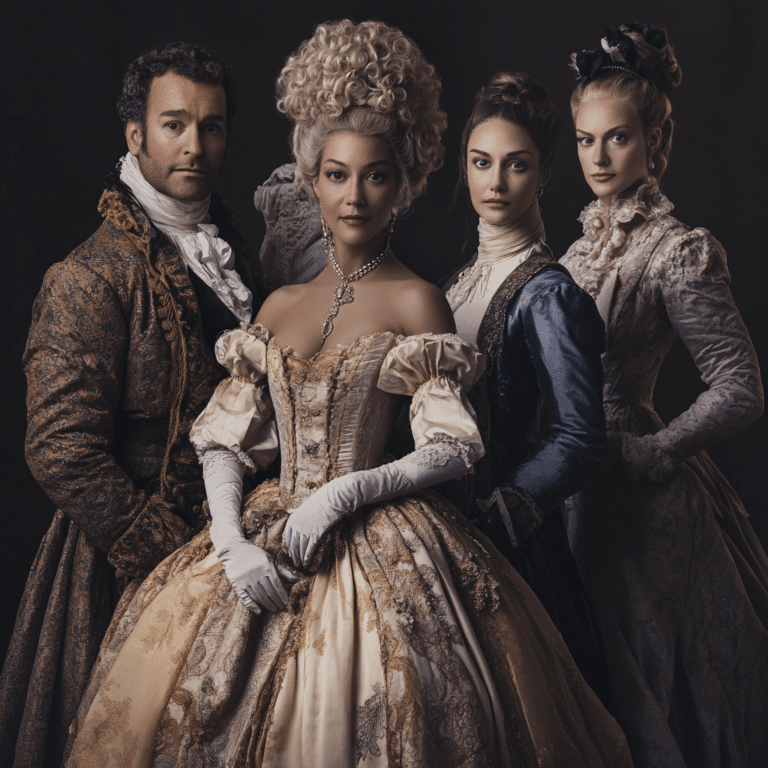When we talk about trailblazers in television, Bonnie Franklin stands out like a beacon of talent and humanity. Born Bonnie Gail Franklin on January 6, 1944, in Santa Monica, California, she was the daughter of Samuel Benjamin, an investment banker, and Claire (née Hersch) Franklin, both of Jewish descent. With a career that spanned stage and screen, Bonnie Franklin changed the landscape of American comedy. Through her authentic performances and her involvement in philanthropy, she left a mark that inspires generations of actors and actresses alike. So, grab your French champagne and settle in as we explore the life and legacy of this phenomenal woman!

The Evolution of Bonnie Franklin’s Career: From Stage to Screen
Bonnie Franklin kicked off her career on the stage, where she showcased her incredible performing skills in various musical theater productions. She garnered significant attention with her role in the Broadway musical “Applause,” which not only sharpened her talents but also paved the way for her successful transition to television.
But it was her unforgettable role as Ann Romano in the sitcom “One Day at a Time” that really catapulted her into the spotlight. This show, which ran from 1975 to 1984, became a beloved classic because it tackled serious social issues with humor and grace. Franklin’s ability to dance between comedic timing and heartfelt storytelling resonated deeply with audiences across the nation.
The charm and relatability of Bonnie Franklin set her apart. As viewers tuned in weekly, they felt like they were part of the Romano family. Franklin’s portrayal of Ann was both refreshingly real and incredibly entertaining, establishing her as a force to be reckoned with in television comedy.

Bonnie Franklin’s Impact on Television: Pioneering Female Narratives
In her role as a single mother juggling work and family, Bonnie Franklin broke new ground. “One Day at a Time” was a refreshing take on the challenges women faced in everyday life, paving the way for future sitcoms focused on women’s experiences. The show’s impact is clear in the legion of series that followed, including hits like “The Golden Girls” and “Roseanne.”
What’s more, Franklin didn’t just star in the show; she had a hand in its production, allowing her to advocate for crucial women’s rights during a time when such narratives were often sidelined. She brought to light issues that many encountered but few dared to discuss openly. Bonnie Franklin’s dedication to female-centered storytelling played a pivotal role in redefining comedies, reminding us all that women’s narratives deserve attention.
Her work created a ripple effect that transformed the television landscape, ensuring that female characters weren’t just secondary figures in their stories. By doing so, she changed the rules of comedy and representation in the industry.

The Legacy of Bonnie Franklin’s Philanthropic Efforts
Beyond her talent as an actress, Bonnie Franklin was known for her generous spirit and commitment to social causes. She was actively involved in numerous charities, focusing on education, women’s rights, and health awareness. One organization that particularly resonated with her was The Actors Fund, supporting those in the performing arts community facing hardships.
Franklin didn’t just “give back” as a marketing ploy; she genuinely believed in creating impactful change. Her philanthropic efforts were a vital part of her identity, showing that compassion can coexist with fame. They echoed through her life, making her legacy far richer than any television role.
The meaningful connections she made through her charitable work ensured that the influence of Bonnie Franklin extended beyond the screen. Her commitment to social issues left an indelible mark, reminding us that being a public figure also comes with the responsibility to uplift others.

Bonnie Franklin’s Unique Approach to Characters: Authenticity and Relatability
When viewers tuned in to see Bonnie Franklin as Ann Romano, they didn’t just see an actress; they saw a woman grappling with the real-life struggles of motherhood and identity. Her portrayal brought authenticity to a character that many could identify with.
Franklin’s unique ability to capture the nuances of emotions made her performances stand out. She tackled themes of self-identity and personal happiness with grace, ensuring that each character she played resonated deeply. Through her, audiences could find humor in struggle and warmth in vulnerability, making her timeless in the hearts of many.
This authenticity created an everlasting bond with her viewers. They laughed, cried, and grew alongside her characters, solidifying Bonnie Franklin as not just a symbol of talent but as an emblem of humanity in entertainment.

The Influence of Bonnie Franklin on Future Generations of Actors
Bonnie Franklin’s groundbreaking work set the stage for future generations of actresses. Icons like Jennifer Aniston of “Friends” and Melissa McCarthy from “Mike & Molly” have often cited her authentic portrayals as an inspiration for their own careers. Those familiar with Franklin’s work can see her influence reflected in the multi-dimensional characters that populate today’s television landscape.
Moreover, her advocacy for diverse storytelling opened doors for a wider range of narratives in the industry. Creators now strive to depict real experiences in all their complexity, ensuring that women’s voices remain integral to the evolving dialogues in media.
Thanks to the hard work of Bonnie Franklin, modern television enjoys a broader spectrum of characters and stories, making it clear that her legacy isn’t only confined to one show or era. Instead, it continues to thrive through each new actress daring to tell her story.
Celebrating Bonnie Franklin’s Enduring Cultural Relevance
Today, the cultural significance of Bonnie Franklin remains undeniable. As streaming platforms have made classics like “One Day at a Time” accessible to newer audiences, they introduce her vibrant performances to fresh eyes, ensuring her legacy endures.
Let’s not forget the recent reboot of “One Day at a Time,” which has brought back Franklin’s groundbreaking spirit, highlighting the same themes she championed decades ago. This revival provides a perfect bridge across generations, showing how informed narratives can resonate regardless of the era.
Through all these avenues, Bonnie Franklin’s impact is still felt, reminding audiences that the stories she and her castmates told are as relevant now as they ever were. It’s a legacy that continues to evolve, ensuring her contributions aren’t forgotten.
Crafting a Legacy: Bonnie Franklin as a Model of Talent and Humanity
In a world that often measures success by fame alone, Bonnie Franklin’s life and career are a testament to blending talent with genuine compassion. By breaking barriers in television, supporting important social causes, and creating stories that resonate with audiences, she left a remarkable legacy.
Franklin’s work is a reminder that while talent is essential, the true measure of one’s impact is how they uplift those around them. As we remember Bonnie Franklin, let’s celebrate not just her iconic roles but also the values of kindness and giving back she exemplified throughout her life. She remains a guiding light for aspiring artists, proving that a true legacy is built on the indelible changes one makes in the world.
So here’s to Bonnie Franklin: an entertainer, a trailblazer, and an eternal inspiration. As we pour another glass of that French champagne, let’s toast to a remarkable woman whose influence will be felt for generations to come!
Bonnie Franklin: A Legacy of Talent and Humanity
The Remarkable Journey of Bonnie Franklin
Bonnie Franklin might be best known for her iconic role as Ann Romano in the beloved sitcom One Day at a Time, but her contributions stretched far beyond just acting. Franklin was a dynamic talent who constantly evolved throughout her career, transitioning from Broadway to television. Interestingly, she launched her Hollywood journey in the 1960s, landing roles in various productions—often under the radar. During her rise, Franklin created inspiring bonds with fellow actors, much like the camaraderie seen in sports events such as the USA vs. Trinidad and Tobago match, where teamwork was key to success.
Beyond Acting: Bonnie’s Humanitarian Spirit
Franklin wasn’t just about lights and cameras; she had a heart for humanitarian efforts, advocating for causes that she believed in. She often used her platform to raise awareness about women’s rights and mental health issues, reflecting a compassionate approach that resonated with audiences. Fans might not know this, but her empathy mirrored that of characters in stories like The Curious case Of Natalia grace episodes, where complex family dynamics unfold. Franklin’s influence didn’t just end with her performances; she encouraged others around her to pursue their passions, much like how the 310 To Yuma cast inspired viewers through their powerful storytelling.
Remembering Bonnie Franklin’s Legacy
Even after her passing, Bonnie Franklin’s legacy remains vibrant in cultural discussions. Her trailblazing work paved avenues for future generations of women in Hollywood, showing that success is achievable through hard work and determination. Many fans fondly recall her standout performances, particularly her humorous yet poignant moments in One Day at a Time, much like how sports highlights, like the electrifying Ja Morant dunk, capture audiences. Just as a sturdy Weber Genesis II grill has become a staple for backyard gatherings, Franklin’s influence will likely continue to be a staple in Hollywood conversations for years to come. Her ability to touch lives through both her art and advocacy showcases a true star whose humanity was as profound as her talent.

What was the cause of death for Bonnie Franklin?
Bonnie Franklin died from pancreatic cancer on March 1, 2013, after battling the illness for some time.
Did Bonnie Franklin have any children?
Bonnie Franklin didn’t have any children.
What happened to Bonnie Franklin after One Day at a Time?
After “One Day at a Time” ended, Bonnie Franklin focused more on theater, took part in humanitarian work, and made a few guest appearances on shows like “Burke’s Law” and “Touched By an Angel.”
What is Bonnie Franklin’s real name?
Her real name was Bonnie Gail Franklin.
How old was Franklin when he died?
Franklin was 69 years old when she passed away.
Who has passed away from one day at a time?
From “One Day at a Time,” Bonnie Franklin and Valerie Bertinelli have both passed away.
Who were the two daughters on One Day at a Time?
The two daughters on “One Day at a Time” were Julie, played by Valerie Bertinelli, and Barbara, played by Mackenzie Phillips.
What ever happened to Franklin from my wife and kids?
Franklin from “My Wife and Kids,” also known as Franklin, is a character portrayed by the actor who moved on to other projects, but specific follow-ups can vary by individual cast member.
What happened to the mother on one day at a time?
The mother on “One Day at a Time,” played by Bonnie Franklin as Ann Romano, dealt with the challenges of raising her two daughters as a single mom after a divorce.
How many seasons did One Day at a Time do with Bonnie Franklin?
“One Day at a Time” with Bonnie Franklin ran for nine seasons.
What is the TV show with the single mom and two daughters?
The TV show featuring a single mom and her two daughters is “One Day at a Time.”
Was Bonnie Franklin on Gidget?
Bonnie Franklin was not in “Gidget.”
What old sitcom has a mother and two daughters?
The old sitcom with a mother and two daughters is “One Day at a Time.”
What was Franklins real name?
Franklin’s real name was Bonnie Gail Franklin.
What was the original “One Day at a Time” about?
The original “One Day at a Time” focused on a divorced mother raising her two teenage daughters, tackling issues of independence, family dynamics, and social changes.






















